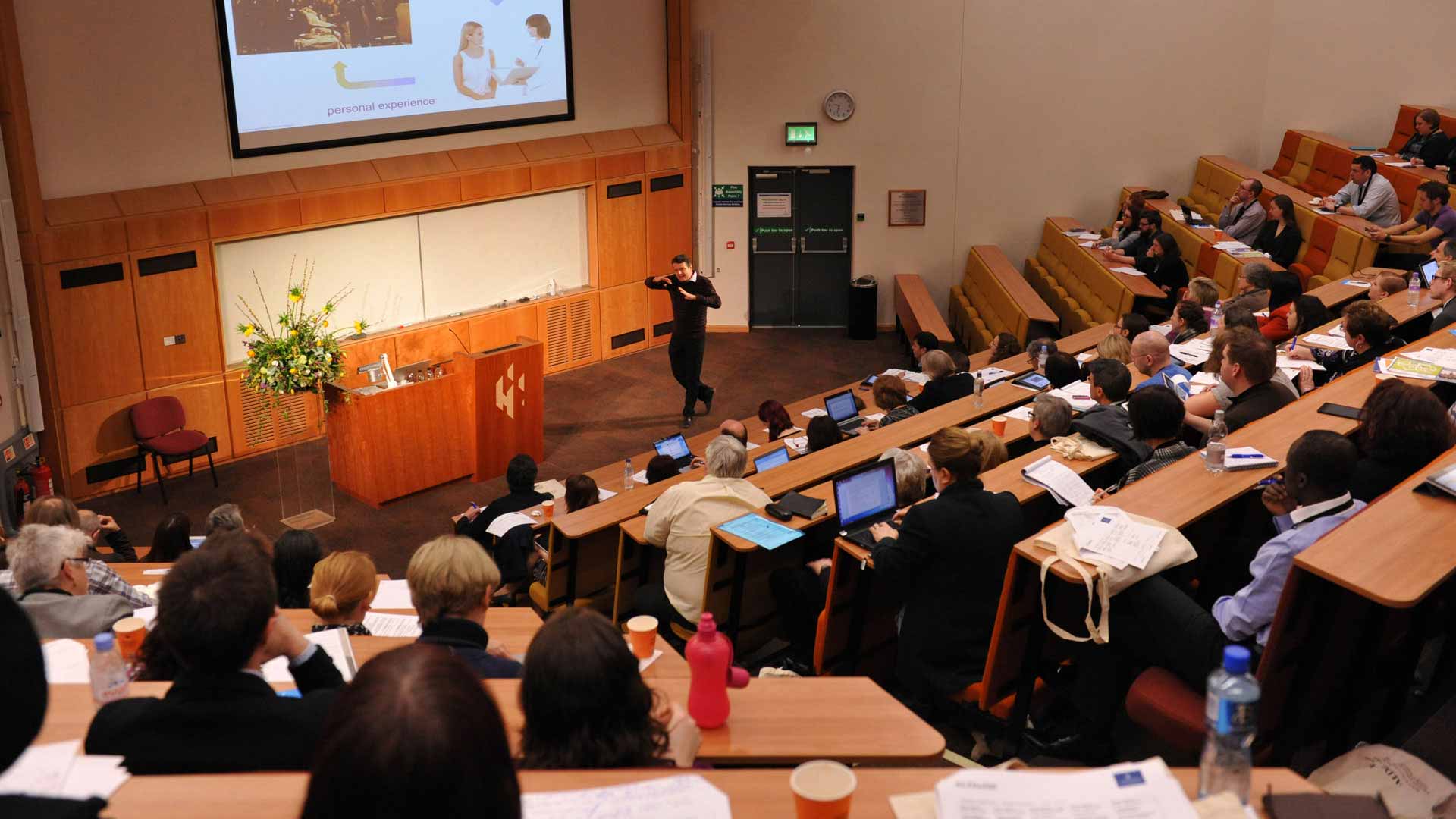
How to make the most of your lectures
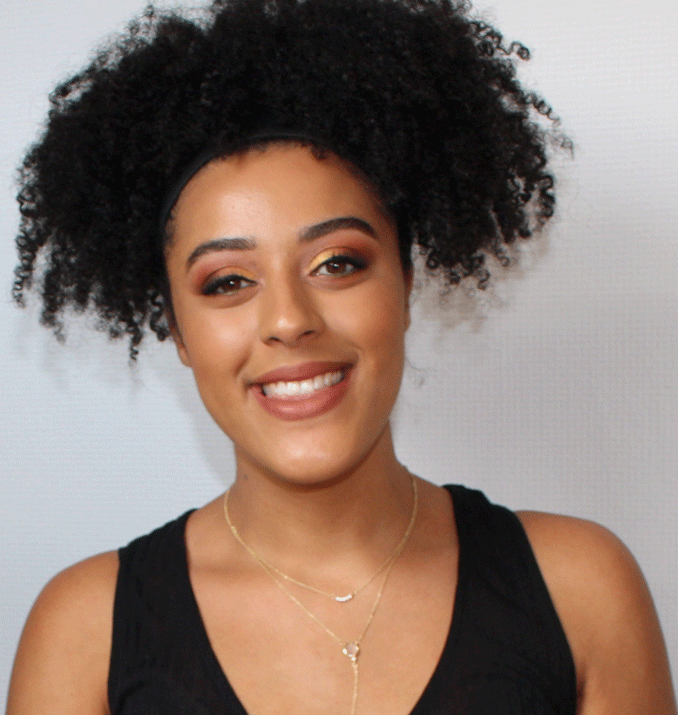
Rebecca King-Asata
Psychology BSc(Hons) - Third Year
Hello, I’m Rebecca! I’m a final year Psychology Student. When I’m not trying to psychoanalyse my favourite TV characters, I’m usually reading, writing a song or getting lost in deep conversation.
After almost three years of attending lectures, both in-person and online, I’ve picked up a thing or two about how to make the most of lectures.
Lectures are talks delivered by the university teaching staff in dedicated areas we very fittingly call ‘Lecture Halls'. Depending on your subject, you’ll usually have a few lectures each week, that will last around two hours - usually with some breaks during that time. I know it sounds like a lot compared to school and college, but once you get used to this style of learning, you’ll never look back!
Pre-lecture
Being prepared beforehand is one of the best ways to make the most of your teaching time in the lecture. There’s a couple of ways you can do this:
- Pre-lecture reading & tasks – You’ll usually be set background reading or tasks. Completing this work will familiarise you with the lecture topic, putting you in a better position to understand the lecture content and ask questions. However, don’t stress if you don’t get the chance to do the pre-lecture activities, you’ll still be able to understand the lecture.
- Lecture Slides – I like to download the slides and have a quick look through them, but I don’t tend to look at them in detail. I find it easier to stay engaged with things I’m unfamiliar with.
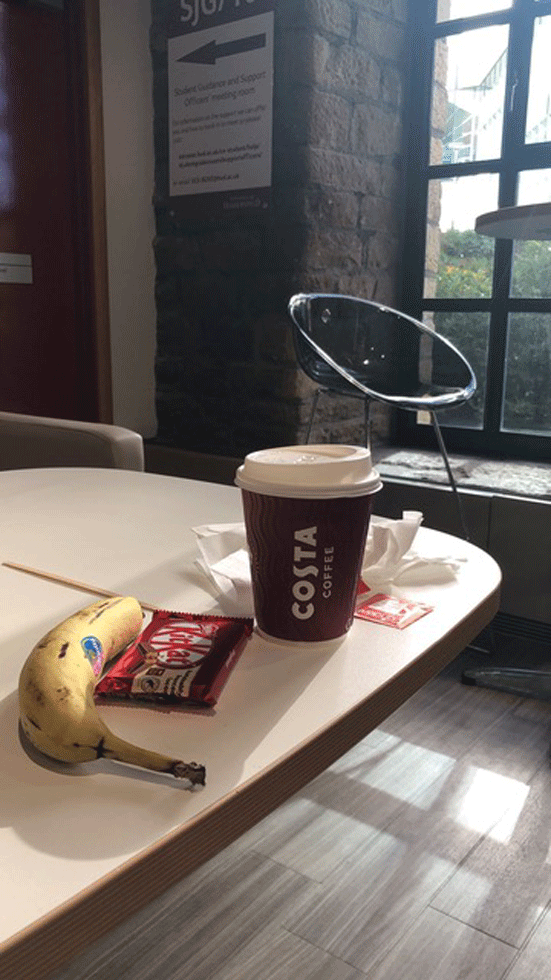
During the lecture
- The fun begins with picking your seat. Within the first couple of weeks, you’ll usually find a spot that works for you in lectures. It sounds minor, but in my experience, where you sit can really impact how your focus in the lecture. My preference is to sit a couple of rows from the front of the lecturer, towards the end of the row – it seems to be where I concentrate best!
- Taking notes is probably the most important part of the lecture. In my first year, I took notes on paper. Now, I take them on my laptop. Either way, I’ve found that the most efficient way to take notes is by using the PowerPoint presentation (either print it off or use the notes section for each slide). It’s easier to follow along, and you stay focused on what the lecturer is saying rather than spending valuable time copying what’s on the slides themselves. If you don’t want to use the PowerPoint, making a note of the corresponding slide number or slide title can help too. It’s worth making a quick note of any questions you have and highlighting anything you think is particularly important or interesting, so you can come back to it at a later point.
- Lastly, make sure you get involved. Some of my lectures are interactive with real-time quizzes and discussion boards. Getting involved keeps the lecture engaging and shows the lecturer that people like the interactive elements so they’re likely to incorporate more into future lectures.
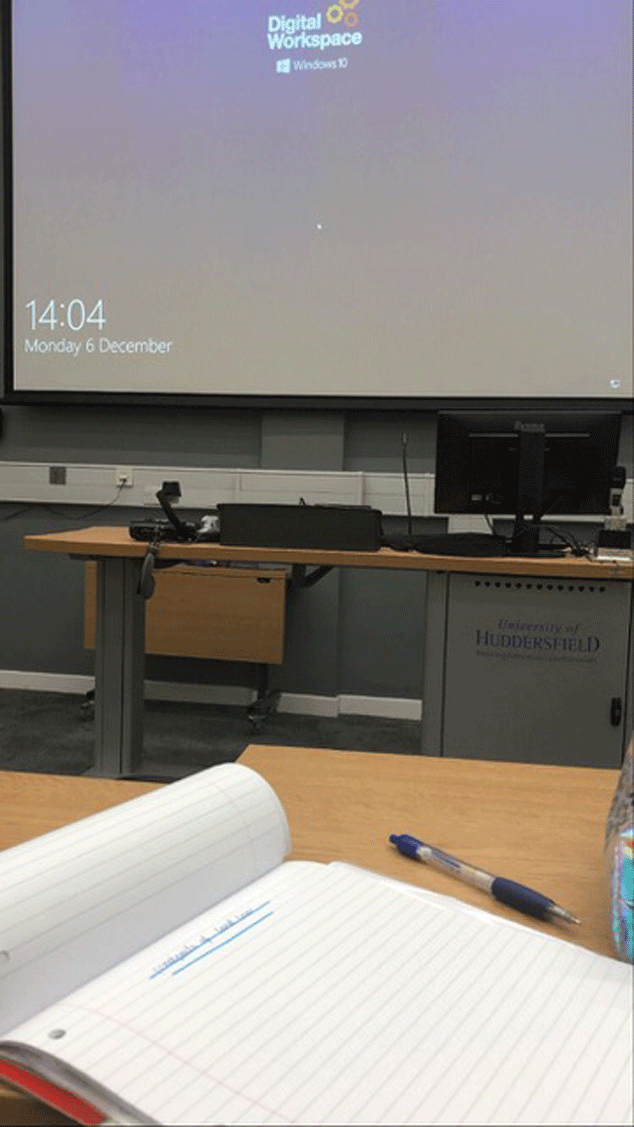
Bonus tips:
- Lecturers can talk quite quickly sometimes, so I like to use abbreviations when I’m taking notes just for speed e.g. I write ‘because’ as ‘bc’.
- If you’re making notes on PowerPoint or word using a laptop, make sure you have autosave turned on – it’ll stop you from losing all your hard work.
- Stay hydrated! Make sure you bring a drink and some snacks for the break.
Post-lecture
- The first thing I do after a lecture is go over my notes. I like to add some colour to emphasise keywords, draw a mind map if I’m feeling extra creative, and check for any gaps in my notes. If there’s anything I’ve missed, I tend to re-watch the lecture recording on Brightspace (you can watch it at a faster speed or skip to the part you need) so I can fill in the gaps.
- Whenever I’m done, I spend a bit of time making sure everything is organised, labelled clearly and in the right folder – this saves so much time when it comes to going over my notes for revision and assignments. If I still have questions at this point, I’ll either ask a coursemate, post it on the discussion board or email my lecturer depending on the complexity of my questions.
- I also like to discuss my lecture with someone - usually my mum. I find that giving her a summary of my lecture and any interesting facts helps me to retain the knowledge. Moreover, I believe if you can explain something to someone, you’ve got a pretty good understanding of it, so it lets me know I’ve grasped the key points of the lecture.
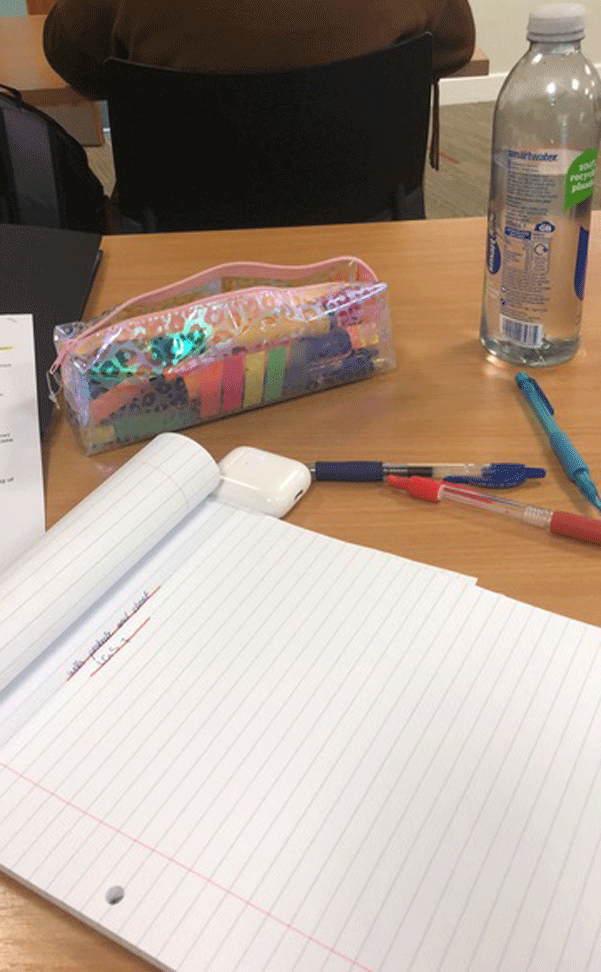
Online lectures
I take the same approach as above with online lectures too - the only difference is the environment. I make sure I’m somewhere quiet where I won’t be disturbed, sometimes it’s my bedroom, sometimes it’s the university (either the library or seating areas in Oastler). The perk of an online lecture is you can ask questions in real-time, so don’t be afraid to ‘raise your hand’ or put your question in the chat.
Initially, the whole concept of lectures can be a little daunting. Hopefully, with some of the tips and tricks I’ve learned throughout my time at uni, you’ll be all set to get stuck in as soon as you start your course!

Find out more about the university and our courses by chatting to our students via Unibuddy here.
More student life articles?
What is life like as a student? Hear it straight from our current students as they write about their student experience.
Meet our reps
These are the students who are sharing what life is really like at the University of Huddersfield.